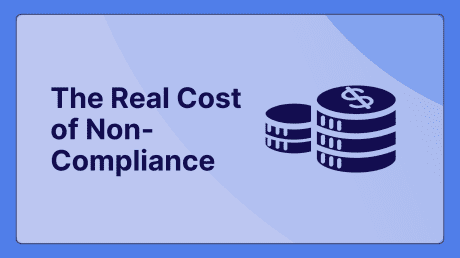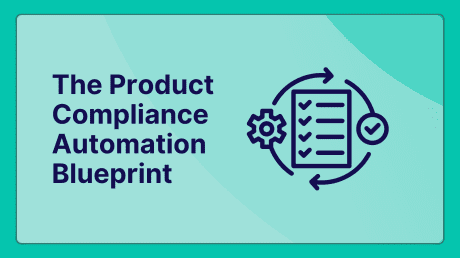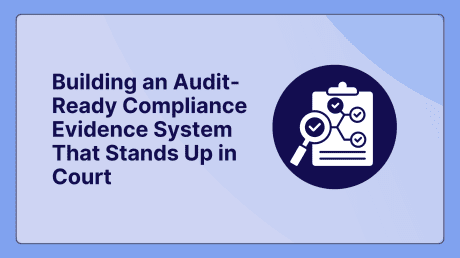
The Biweekly Pulse: 2nd – 13th June – CSRD and CSDDD, EU Deforestation Regulation & Packaging Labeling Updates

The Pulse was originally posted on 18th June, 2025. Further regulatory developments may have occurred after publication. To keep up-to-date with the latest compliance news, sign up to our newsletter.
Check out the latest 2025 Regulatory Compliance Updates with The Pulse, your biweekly source for global regulatory insights!
This Week’s Trending Sources in C2P
- Global Overview of WEEE EPR Obligations, White Paper, June 2025
- Asia’s ESG & Sustainability Landscape: Compliance Essentials for 2025, Webinar Presentation, June 2025
- EU: Deep Dive on Critical Raw materials for Batteries in the EU, Document, 2025
What is Our Content Team Talking About?
CSRD and CSDDD Omnibus Update
by Hannah Janknecht, Regulatory Compliance Specialist
While one section of the Omnibus Package, the ‘stop-the-clock’ amendment, was already adopted in April 2025, further changes to the content of both the CSDDD and CSRD are still under negotiation.
MEP Jörgen Warborn (EPP), who is the designated Omnibus rapporteur for the Committee on Legal Affairs, has now published a draft report with proposed amendments to the EU Commission’s Omnibus Package.
In this report, he proposes to raise the thresholds for the CSRD and CSDDD to companies with over 3,000 employees and 450 million euro net turnover, which goes even beyond what was proposed by the EU Commission.
In addition, it is proposed to remove the requirement to adopt climate transition plans from the current text of the CSDDD.
The report will be debated by the JURI shadow reporters at the end of June, while other MEPs have the opportunity to submit proposals until 26 June 2025. The Committee on Legal Affairs is expected to finalize their proposed amendments in October.
At the same time, EFRAG is expected to publish a first draft of the revised European Sustainability Reporting Standards (ESRS) by mid-June, followed by a public consultation in August and September.
What Are Our Knowledge Partners Talking About?
How the Latest EU Deforestation Regulation Updates Will Impact Your Business
by RINA
As Europe pushes forward with encouraging deforestation-free sourced products, the EU Deforestation Regulation (EUDR) is evolving, as such those who trade in or manufacture affected goods must do the same. On April 15, 2025, the European Commission released a simplified guide and a draft Delegated Act (i) fine tuning the enforcement of the regulation. If your business deals with wood, paper, packaging or simply ships products on a wooden pallet, these changes may impact your obligations.
Key impacts from the updated delegated act and simplified guidance
1. Chapter 47 & 48: Narrower Scope for Paper and Pulp
Which sheds a clearer light on what falls in and out of scope, especially in the nuanced area of paper and pulp-based materials. Pulp and paper products have been narrowed in scope using the prefix ‘ex’, meaning only specific subcategories of these materials, are now in scope, not the entire category (ii). In short, materials such as paper manuals, labels and inserts are considered out of scope when they are sold as part of a non-relevant product (e.g., electronics) and are not placed on the market separately (iii). This is great news for businesses like electronic retailers or furniture brands that include printed material with their products as they do not need to carry out due diligence for these materials if they are merely used to support, protect or carry the main product.
However, if the packaging or printed material is the product, the scenario changes. For example, if a non-small medium enterprise (non-SME) trader purchase printed cardboard slipcases or paperboard packaging separately- before using them to package a console- those materials are considered products placed on the market and are therefore in scope. Due diligence obligations apply at the point when the packaging is commercially available or imported into the EU market.
To put it simply: packaging that is sold with a product with the intent of protecting or carrying said product, is typically out of scope. But packaging purchased separately is a product and subject to EUDR requirements.
2. Due Diligence Statement (DDS): Easier and Earlier Submissions
One of the key improvements introduced is the ability to submit a DDS up to one year in advance. With this change, businesses can better align their compliance processes with long-term procurement and logistics planning e.g., if a company has procured cardboard packaging from outside the EU, they could avoid last-minute bottlenecks by submitting DDS for this packaging in advance and shift their focus to planning for alternative supply chains in the future.
In addition, operators can now reuse a DDS for identical products sourced from the same supply chain. For example, a retailer importing the same type of paper packaging every two months from the same supplier can rely on a previously submitted DDS without having to repeat the process each time. Non-SME traders will be happy to hear that they won’t have to perform their own due diligence, they can rely on a DDS prepared by an upstream operator, provided they obtain and reference the relevant DDS submission number. That means less administrative burden and more traceability within your supply chain.
3. Scoping for Reused Packaging
The new guidance has provided further clarification to help businesses determine when due diligence is necessary and when it’s not. More nuanced use case clarifications will help operators determine whether used transit or tertiary packaging (e.g., pallets, crates, shipping wrap or pack fill) are in scope. As covered earlier, if a producer sells a pallet to a manufacturer, that pallet is a standalone product and is covered by EUDR. Once the manufacturer uses this pallet to protect a product (transit packaging) it is no longer in scope. Where this gets interesting is in the reuse of packaging that has already been used exclusively as protective packaging. If a retailer sends back used empty packaging to the manufacturer, this packaging is not in scope. Selling or renting used packaging material to other companies is not in scope. Therefore, trading packaging material in a closed loop exchange system (e.g., one company sells used pallets to another company) is not covered by EUDR .
Keep in mind however, that there is an exception to this is if used packaging is repaired then sold, only the new relevant products used for repair, must comply with the EUDR. In the example of the pallet, only the new wood components are subject to a DDS. If recycled materials are used for repair, these are not in scope.
Next steps
It is recommended to review commodity codes against the updated Annex 1 – especially for those which trade in paper, pulp or wood-derived products – to check whether the new “ex” classifications means your obligations are descoped. It is also worthwhile to reassess your packaging practices, considering the items which reach end users and what’s simply used in transit could relieve administrative burden. Early coordination with your suppliers is essential – allowing you to reuse existing due diligence submissions where permitted or submit your own statement well in advance.
References
(i) Commission takes action to simplify the implementation of the EU Deforestation Regulation
(ii) FAQ 4th Iteration April 25
(iii) Updated Guidance Document for Regulation on Deforestation-Free Products
What Are Our Clients Asking About?
In the UK, is it Mandatory to Display the Recycling Symbol on Packaging?
Answered by Conor O’Donoghue, Regulatory Compliance Specialist
There is currently no obligation to display a symbol for recycling in the UK. However, the UK government does plan to announce mandatory packaging labeling at some point in 2025.
The Department for Environment Food and Rural Affairs (DEFRA) released an announcement in which they stated that “We plan to include mandatory labeling across the UK – via an amendment to our forthcoming legislation in 2025 – and our approach will be consistent across all nations of the UK.” Additionally, DEFRA have indicated that they plan to take the EU’s Packaging Regulation (PPWR) into account when developing these labeling requirements.
Stay Ahead Of 2025 Regulatory Compliance Updates with The Pulse
Want to stay on top of 2025 Regulatory Compliance Updates?
All insights in The Pulse come directly from C2P – the trusted compliance platform used by over 300 of the world’s leading brands. With coverage across 195+ countries, C2P empowers you to achieve, maintain, and expand market access faster and with confidence.
C2P is an enterprise SaaS platform designed to meet your unique compliance needs. It brings together everything in one place – regulations, standards, requirements, and evidence – so you can manage compliance across the enterprise with ease.
Need more? Our tailored add-on packages unlock use-case-specific solutions, enriched global regulatory content, and direct access to a global team of subject matter experts and professional services.
C2P is your key to unlocking global market access.
- Accelerate time-to-market for products
- Reduce non-compliance risks that impact your ability to meet business goals and cause reputational damage
- Enable business continuity by digitizing your compliance process and building corporate memory
- Improve efficiency and enable your team to focus on business critical initiatives rather than manual tasks
- Save time with access to Compliance & Risks’ extensive Knowledge Partner network
Keep Your Finger on the Pulse of Regulatory News!
Join 30,000+ compliance professionals for 2025 regulatory compliance updates on hot compliance issues, market insights on the latest trends, and free regulatory webinars and whitepapers








